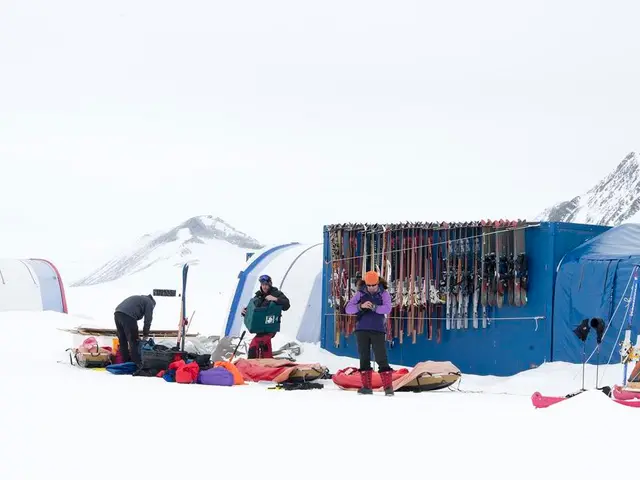Will Senate Republicans Prevent the Reversal of Climate Legislation?
The Inflation Reduction Act, a landmark piece of legislation aimed at boosting clean energy and manufacturing, has sparked debate among Republican senators.
Chuck Grassley, representing wind turbine-dotted Iowa, has called for compromise on extending support for wind power. His stance is shared by Senator John Curtis of Utah, who has expressed concerns about the phasing out of solar and wind tax credits from the Act.
Senator Curtis, in a Deseret News op-ed, argued that many of these credits are Republican policies that should be protected. He advocates for a thoughtful, principled bill to avoid pulling the rug out from under American innovators.
Meanwhile, Sen. Jerry Moran of Kansas, who in April penned a letter alongside Sens. Curtis, Murkowski, and Tillis defending IRA tax credits, has yet to publicly comment on the issue. Senators Thom Tillis of North Carolina and Curtis have placed holds on Treasury nominations over these issues, indicating a critical stance toward parts of the Act's renewable energy provisions.
Tillis also wants to revise the House's cuts to IRA production and investment tax credits, as well as a provision that bars companies with ties to China from accessing incentives. He represents a state where clean manufacturing and solar project development has boomed in recent years.
Senator Lisa Murkowski (R-Alaska) believes the Senate is unlikely to stand by the House's provision that would require clean energy projects to start construction within 60 days of bill enactment or miss out on tax credits.
Shelley Moore Capito, from West Virginia, wants to keep hydrogen incentives alive, while North Dakota's John Hoeven wants to preserve some incentives for geothermal.
Bill Cassidy of Louisiana may look to change the House's proposed 60-day deadline for accessing tax credits.
Early signs suggest that at least two GOP senators - John Curtis of Utah and Thom Tillis of North Carolina - are not in favor of the aggressive cuts in the current version of the bill. This contrasts with the nearly two dozen House Republicans who signed a letter opposing IRA cuts in late March, but did not vote against the bill when it came to a vote in May.
Interestingly, most of the benefits from the Inflation Reduction Act have gone to regions represented in Congress by Republicans. Despite this, Curtis agrees that some IRA provisions include "frivolous spending," but warns against treating "good policy ideas as guilty by political association."
Amidst this political discourse, the Trump administration continues to try to prop up fossil-fuel power plants, a mission that experts and regulators deem uneconomical and unwise. The Senate is now considering the same bill, and the outcome of these debates could shape the future of American energy policy.
Read also:
- United States tariffs pose a threat to India, necessitating the recruitment of adept negotiators or strategists, similar to those who had influenced Trump's decisions.
- Weekly happenings in the German Federal Parliament (Bundestag)
- Southwest region's most popular posts, accompanied by an inquiry:
- Discussion between Putin and Trump in Alaska could potentially overshadow Ukraine's concerns








